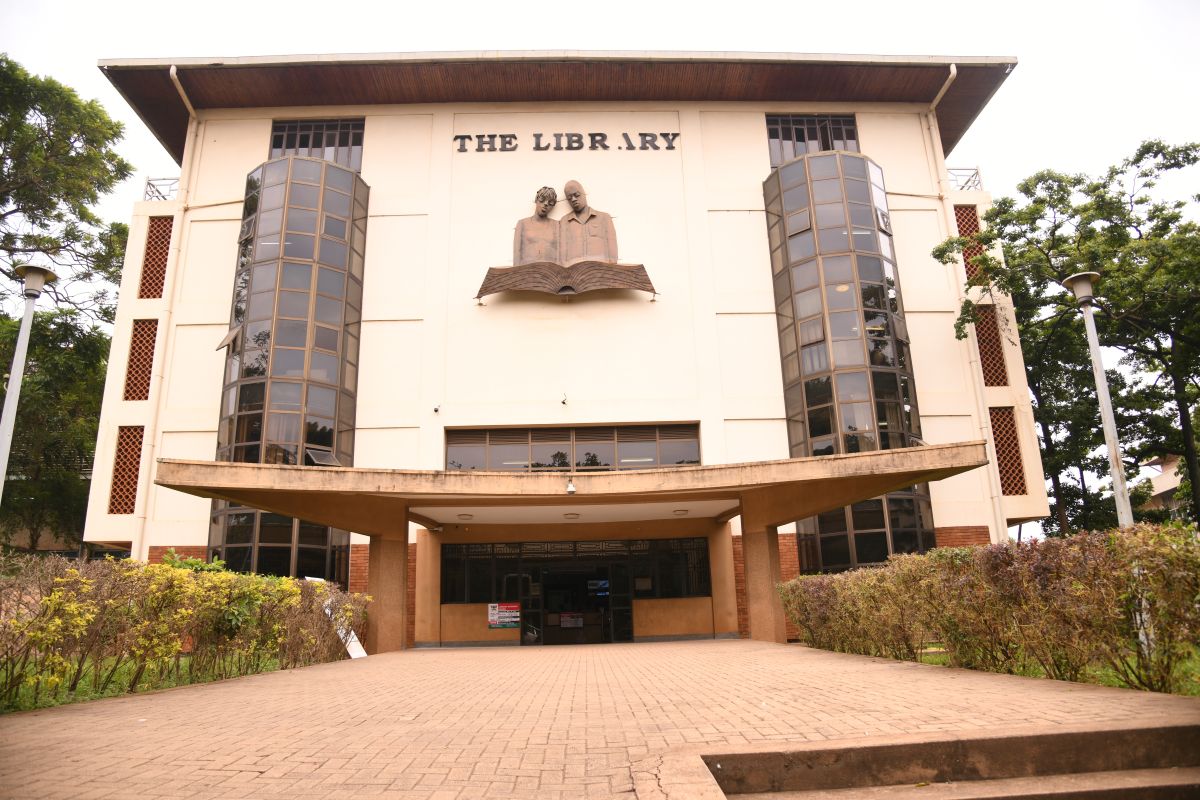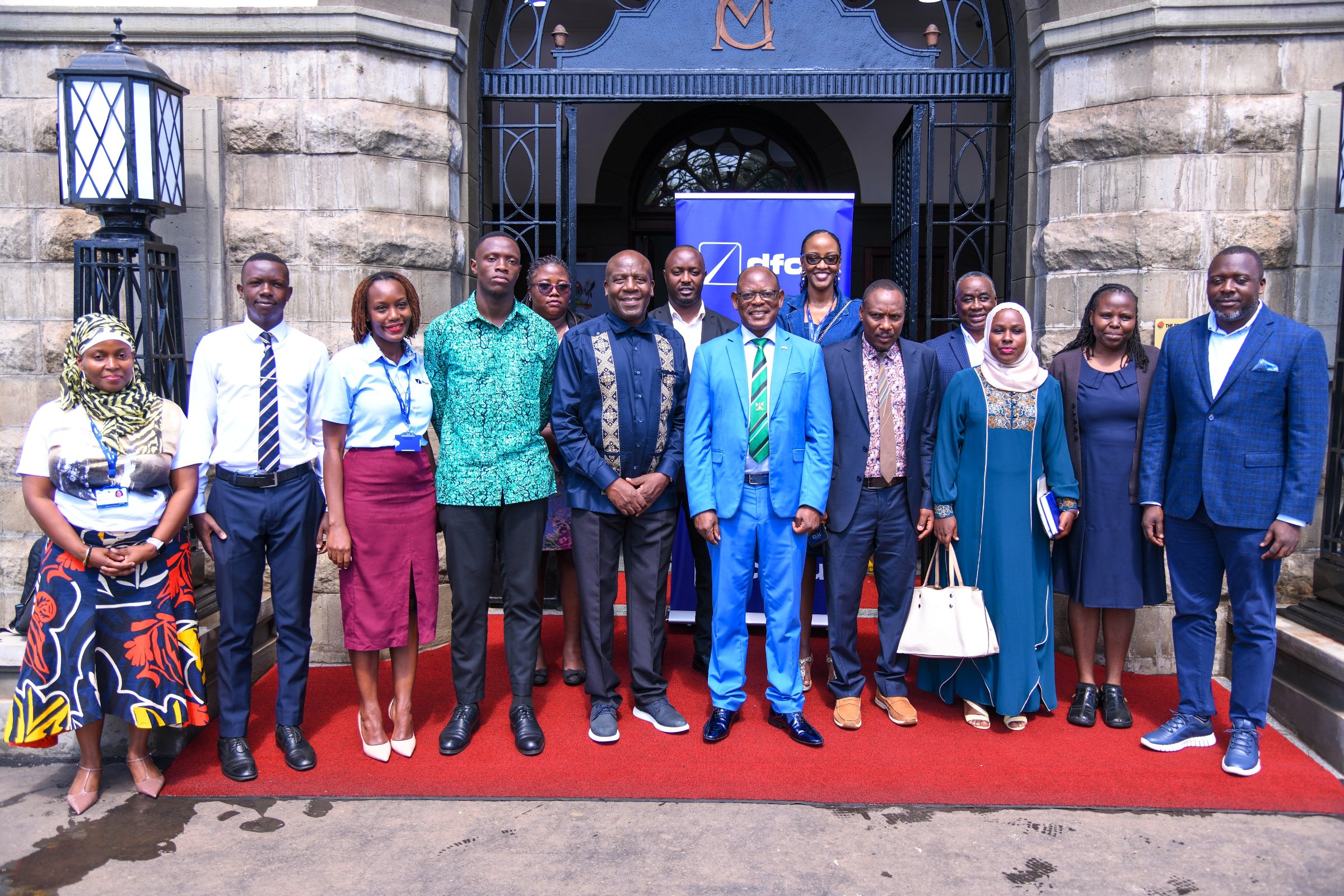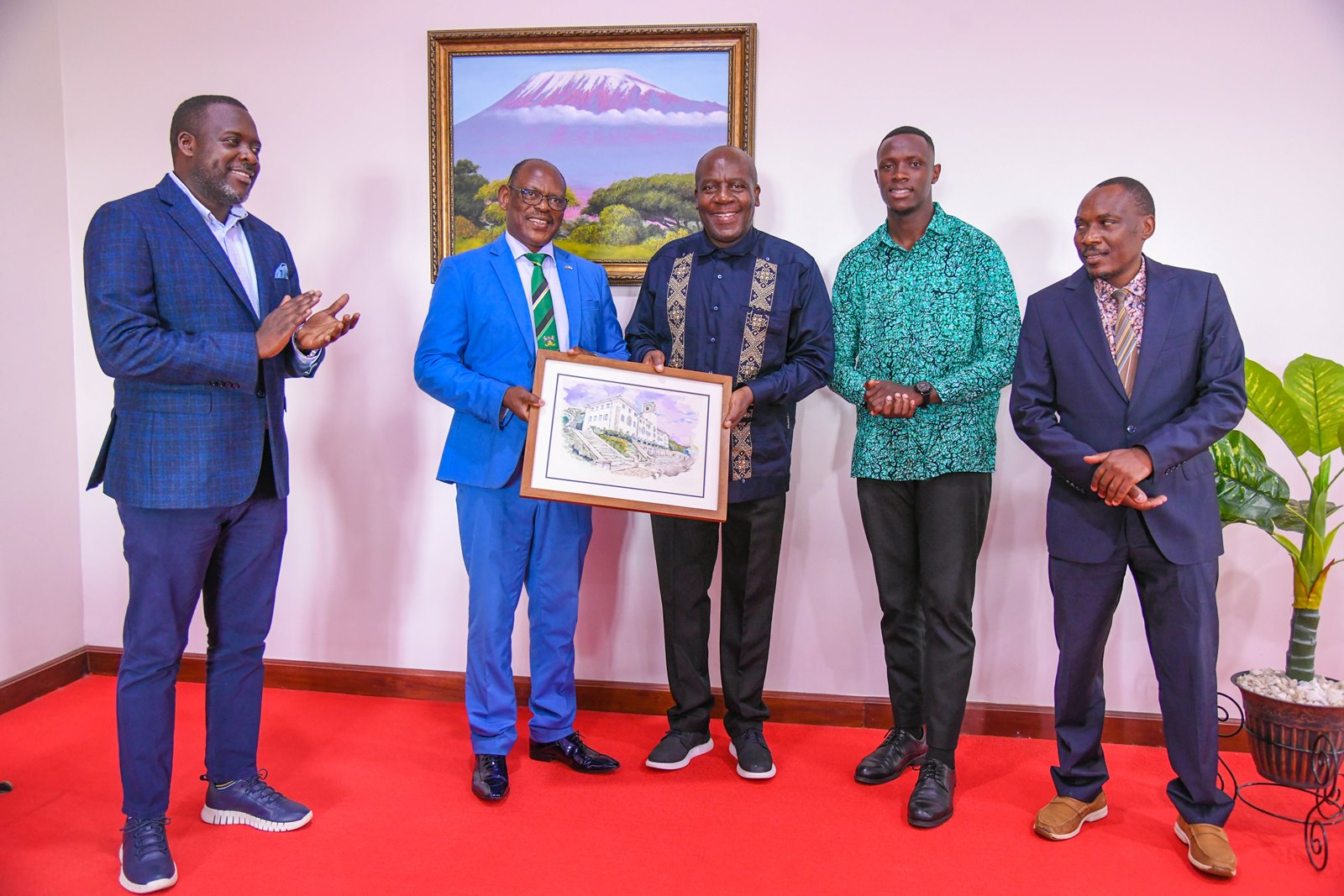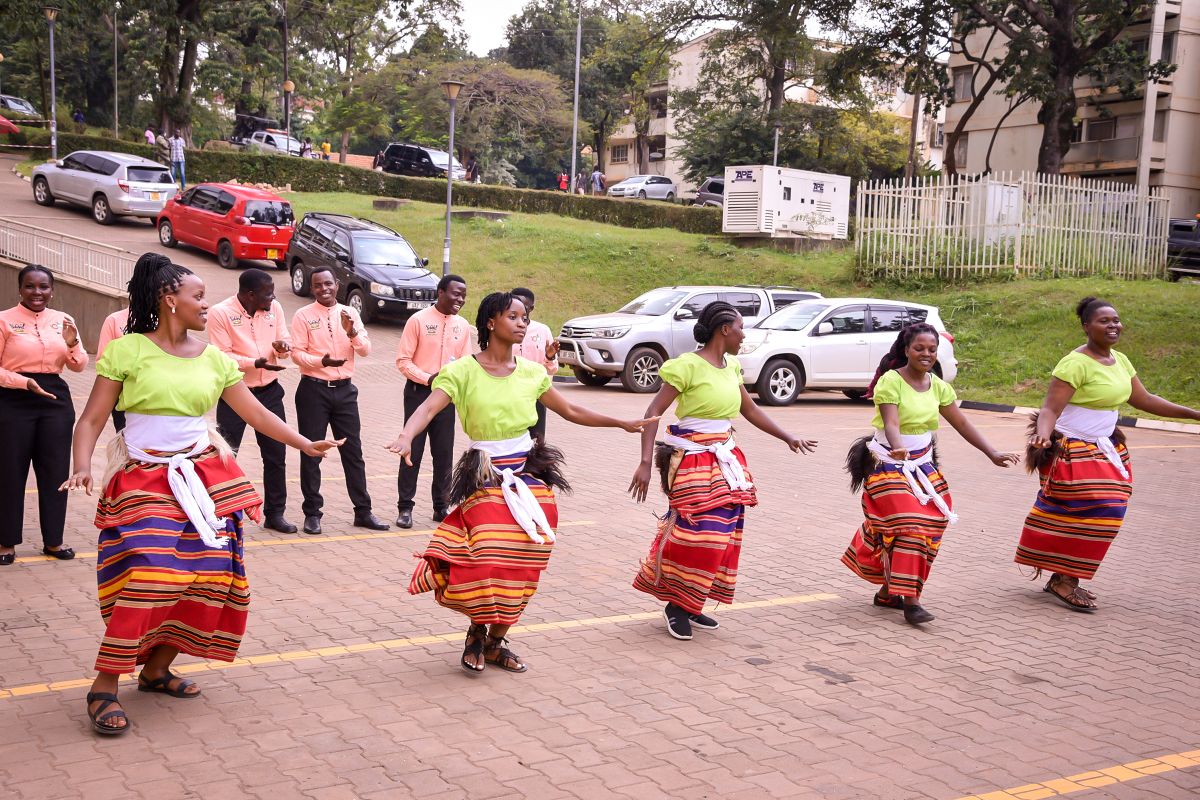The ELISA Test Kit, an in-house innovation developed by Dr. Frank Norbert Mwiine during his PhD Research could help save Ugandan cattle farmers from the devastation caused by the Foot-and-Mouth Disease Virus (FMDV).
The ELISA Test Kit, an in-house innovation developed by Dr. Frank Norbert Mwiine during his PhD Research could help save Ugandan cattle farmers from the devastation caused by the Foot-and-Mouth Disease Virus (FMDV).
 Dr. Mwiine made these revelations as he disseminated his research findings at the ninth PhD Dissemination Series, held on Thursday 15th December 2011, and chaired by Associate Professor David Owiny, Acting Deputy Dean, School of Veterinary Medicine, College of Veterinary Medicine, Animal Resources and Bio-Security(CoVAB). The Series are organized by the Office of the Deputy Vice Chancellor in-charge of Academic Affairs as a way of accounting to the Makerere University Community by successful PhD graduates, and as an avenue for sharing with the general public, cutting edge research relevant to their daily needs.
Dr. Mwiine made these revelations as he disseminated his research findings at the ninth PhD Dissemination Series, held on Thursday 15th December 2011, and chaired by Associate Professor David Owiny, Acting Deputy Dean, School of Veterinary Medicine, College of Veterinary Medicine, Animal Resources and Bio-Security(CoVAB). The Series are organized by the Office of the Deputy Vice Chancellor in-charge of Academic Affairs as a way of accounting to the Makerere University Community by successful PhD graduates, and as an avenue for sharing with the general public, cutting edge research relevant to their daily needs.
Dr. Barnabas Nawangwe, Principal, College of Engineering, Design, Art and Technology (CEDAT) and acting Deputy Vice-Chancellor (Academic Affairs) urged all stakeholders present, especially the staff, to maximally utilize all opportunities accorded by the Government’s line Ministries and special programs.
“Government is the most valuable partner if we are to enhance the visibility of Makerere University” he remarked.
Dr. Frank Norbert Mwiine’s PhD study was sponsored by the Ministry of Agriculture, Animal Industry and Fisheries (MAAIF).
 As he made his presentation on “Serotype Specificity of Antibodies against Foot-and-Mouth Disease Virus in Cattle in Selected Districts in Uganda”, Dr. Mwiine appreciated the opportunity to conduct his research accorded by MAAIF, noting that FMDV was one of those neglected animal diseases, despite its devastating economic impact.
As he made his presentation on “Serotype Specificity of Antibodies against Foot-and-Mouth Disease Virus in Cattle in Selected Districts in Uganda”, Dr. Mwiine appreciated the opportunity to conduct his research accorded by MAAIF, noting that FMDV was one of those neglected animal diseases, despite its devastating economic impact.
He noted that whereas vaccines were imported by the Government of Uganda and heavily subsidized to enable farmers vaccinate all their animals, the smaller ruminants i.e. goats and sheep were often neglected and the vaccines were only of the trivalent type.
As revealed by his research, more than five out of the seven known strains of FMDV were prevalent in Uganda, hence rendering the trivalent vaccines completely ineffective against any disease outbreaks. The situation is further aggravated by scarce Government resources, implying that imports that are only made during outbreaks, thus preventive vaccination cannot be carried out.
 Dr. Mwiine’s passion to help see the disease eradicated from the country stems from his previous work experience as a Veterinary Officer in Western Uganda. His first-hand account of infected animals practically starving to death as they could neither graze nor walk, drove him to develop the ELISA Test Kit. The kit will be used to detect all seven strains of FMDV and help develop their respective antibodies. The ELISA Test Kit is set to be patented and is currently in production phase so that it may be made commercially available to veterinary officers.
Dr. Mwiine’s passion to help see the disease eradicated from the country stems from his previous work experience as a Veterinary Officer in Western Uganda. His first-hand account of infected animals practically starving to death as they could neither graze nor walk, drove him to develop the ELISA Test Kit. The kit will be used to detect all seven strains of FMDV and help develop their respective antibodies. The ELISA Test Kit is set to be patented and is currently in production phase so that it may be made commercially available to veterinary officers.
Farmers in Bushenyi District where FMDV prevalence was observed to be low were commended for their good farming practices, which ensured that the farms were fenced and their cattle did not use the communal watering points. Dr. Mwiine however noted the need to sensitize farmers bordering national parks to avoid straying into these, as strains of the serotype A; usually found in buffaloes alone, was recorded in cattle herds around Lake Mburo National Park. He also called on Government to effect a shift in policy from nomadic pastoralism to ranching.
 The Guest of Honour Dr. Anna Rose Ademun Okurut, Head, National Animal Disease Diagnostics and Epidemiology Centre-MAAIF, hailed Dr. Mwiine for successfully completing his PhD study and developing the ELISA Test Kit.
The Guest of Honour Dr. Anna Rose Ademun Okurut, Head, National Animal Disease Diagnostics and Epidemiology Centre-MAAIF, hailed Dr. Mwiine for successfully completing his PhD study and developing the ELISA Test Kit.
She thanked the Danish Government through the Livestock Wildlife Diseases in East Africa Project (LWDEA) Project for helping to provide scholarships to four PhD and 4 MSc students. Dr. Ademun further congratulated her former Faculty of Veterinary Medicine upon the successful transformation from a School to the College of Veterinary Medicine, Animal Resources and Bio-Security(CoVAB).
Dr. Ademun further congratulated Makerere University for continuing to produce world-class innovations, noting that it was the only way to give back to the communities and the nation, “The Government is proud of outputs of the nature of Vaccines, the Kiira-EV and research that informs current policies and activities” she concluded.
Downloads
9th PhD Dissemination by Dr. Frank N. Mwiine: ppt(1,947KB), pdf(1,046KB)
9th PhD Dissemination Dr. Frank N. Mwiine Brief Profile: doc(40KB), pdf(13KB)
9th PhD Dissemination Dr. James O. Acai Brief Profile: doc(34KB), pdf(13KB)
mwamai@admin.mak.ac.ug, Public Relations Office

 Education1 day ago
Education1 day ago
 General1 week ago
General1 week ago
 General2 weeks ago
General2 weeks ago
 General4 days ago
General4 days ago
 General2 weeks ago
General2 weeks ago




